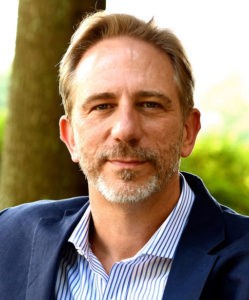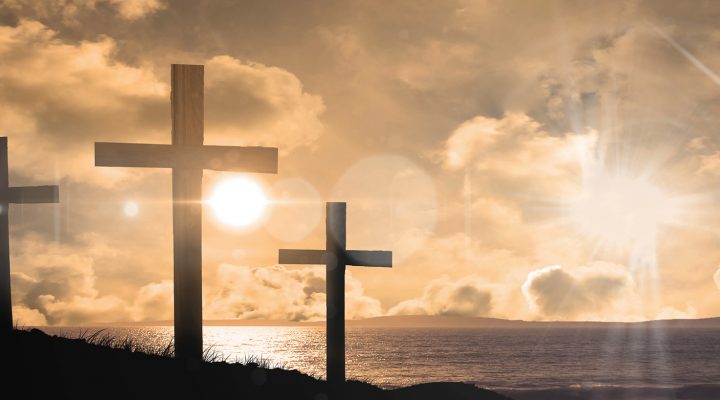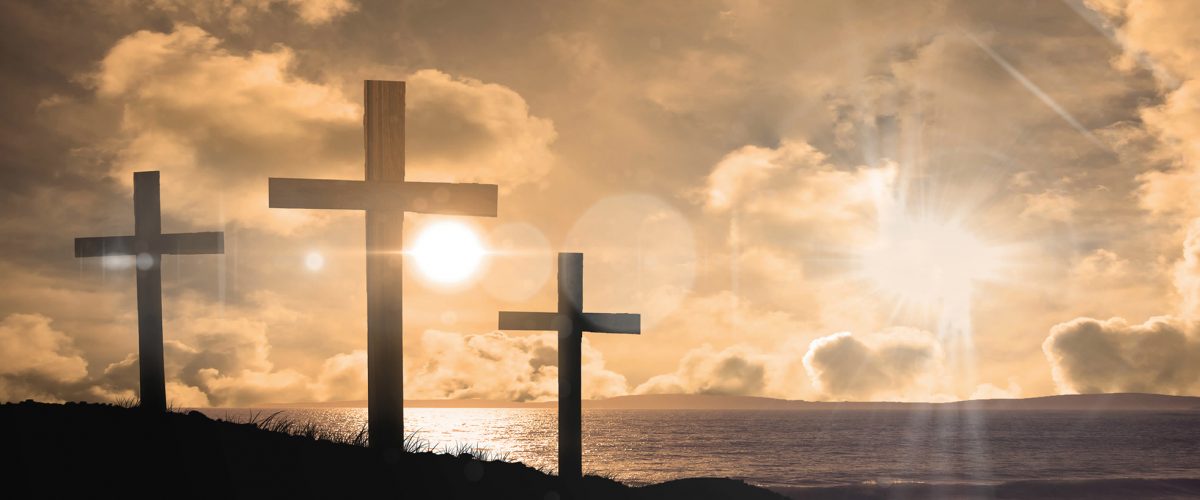The Lenten season has been especially intense for me this year on a spiritual level. I have sought to follow its rhythms, demands and opportunities from Ash Wednesday until now, Holy Week.
Each day I have read the Mass readings and experienced their impact. My sense that the Christian life is best undertaken within the rhythm of the Christian calendar, curated by historic Christian tradition, never has been stronger.

David Gushee
The themes of the Lenten season are important ones in the Christian journey. This year, I have been affected by the constant call to self-awareness and repentance of the sins that beset me. The sad state of the human condition, alienated from God and one another. The warnings of divine judgment mixed with the promises of divine mercy. The promise of Israel’s covenant opening out to include the Gentiles who will believe. Jesus preparing himself and his disciples for his death. Hints that this death will not be the end of the story.
Palm Sunday packed a punch this year. At the Catholic Church where I worship with my wife, Jeanie, the service tried to do a lot. Jesus enters Jerusalem in triumph, and we join the crowd in its hosannas. But the Gospel reading is a 15-minute rendering of the entire Passion in Mark, stopping short of the Resurrection. The people go to their knees at the telling of the death of Jesus. The homily is brief and hardly necessary. The story is itself the sermon: Last Supper, Gethsemane, arrest, trials, humiliations, tortures, crucifixion.
Certain words still resonate with me so deeply. These are in Mark: Take, this is my body. This is my blood of the covenant. Before the cock crows twice, you will deny me three times. Abba, Father, remove this cup from me; yet not my will but yours be done. The spirit indeed is willing, but the flesh is weak. You will see the Son of Man seated at the right hand. Crucify him, crucify him! He saved others, he cannot save himself. My God, my God, why have you forsaken me?
At the Cross, there is so much to see that I cannot see it all at one time. Sometimes what I see is a grotesque miscarriage of justice visited upon an innocent man. I see bloodlust and what happens when people, like the soldiers here, know they are free to do whatever they want to the body and spirit of a defenseless person. I see the very best one experiencing the very worst fate. I see echoes of a thousand times ten thousand lynchings, judicial or otherwise.
“God came to us in love and we killed him. Yet that was not the end of the story.”
This year I noticed Jesus’ fear, in Gethsemane. He did not want to die and asked to be relieved of this fate. I also noticed that in Mark, Jesus only says one thing from the Cross. He ignores all the taunts and derision but as he dies, he utters his staggering cry of forsakenness from Psalm 22. That makes sense to me. Sometimes there are just no words.
There is more, of course, at the Cross. There is Jesus’ submission to his fate. There is his confidence that this death is not just another meaningless murder but for the salvation of the world, for a new covenant, sealed in his blood.
Perhaps what I most see at the Cross, at least this year, is fittingness: it seems absolutely fitting that in a bloody mess of a world like this one, that the way salvation would come would be through the torture-execution of God-become-human, the best, the purest, the noblest, the most loving expression of human life ever seen. God came to us in love and we killed him. Yet that was not the end of the story.
Despite many doubts these days in theological circles as to whether the Cross should remain central in our telling of the Christian story, it remains central in my faith. Because it rings true.
David P. Gushee is a leading Christian ethicist. serves as distinguished university professor of Christian Ethics at Mercer University, chair of Christian social ethics at Vrije Universiteit Amsterdam, and senior research fellow at International Baptist Theological Study Centre. He is a past president of both the American Academy of Religion and the Society of Christian Ethics. His latest book is Introducing Christian Ethics. He’s also the author of Kingdom Ethics, After Evangelicalism, and Changing Our Mind: The Landmark Call for Inclusion of LGBTQ Christians. He and his wife, Jeanie, live in Atlanta. Learn more: davidpgushee.com or Facebook.


